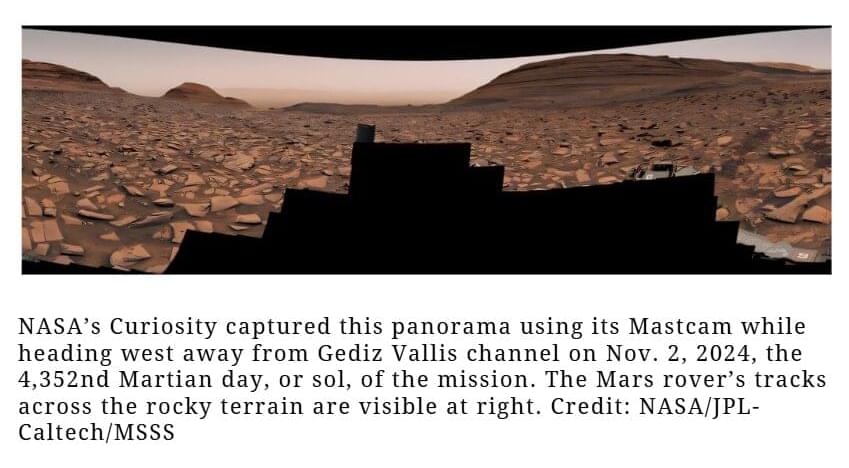NASA’s Curiosity rover is preparing for the next leg of its journey, a months-long trek to a formation called the boxwork, a set of weblike patterns on Mars’s surface that stretches for miles. It will soon leave behind Gediz Vallis channel, an area wrapped in mystery. How the channel formed so late during a transition to a drier climate is one big question for the science team. Another mystery is the field of white sulfur stones the rover discovered over the summer.
Curiosity imaged the stones, along with features from inside the channel, in a 360-degree panorama before driving up to the western edge of the channel at the end of September.
The rover is searching for evidence that ancient Mars had the right ingredients to support microbial life, if any formed billions of years ago, when the Red Planet held lakes and rivers. Located in the foothills of Mount Sharp, a 3-mile-tall (5-kilometer-tall) mountain, Gediz Vallis channel may help tell a related story: what the area was like as water was disappearing on Mars. Although older layers on the mountain had already formed in a dry climate, the channel suggests that water occasionally coursed through the area as the climate was changing.
